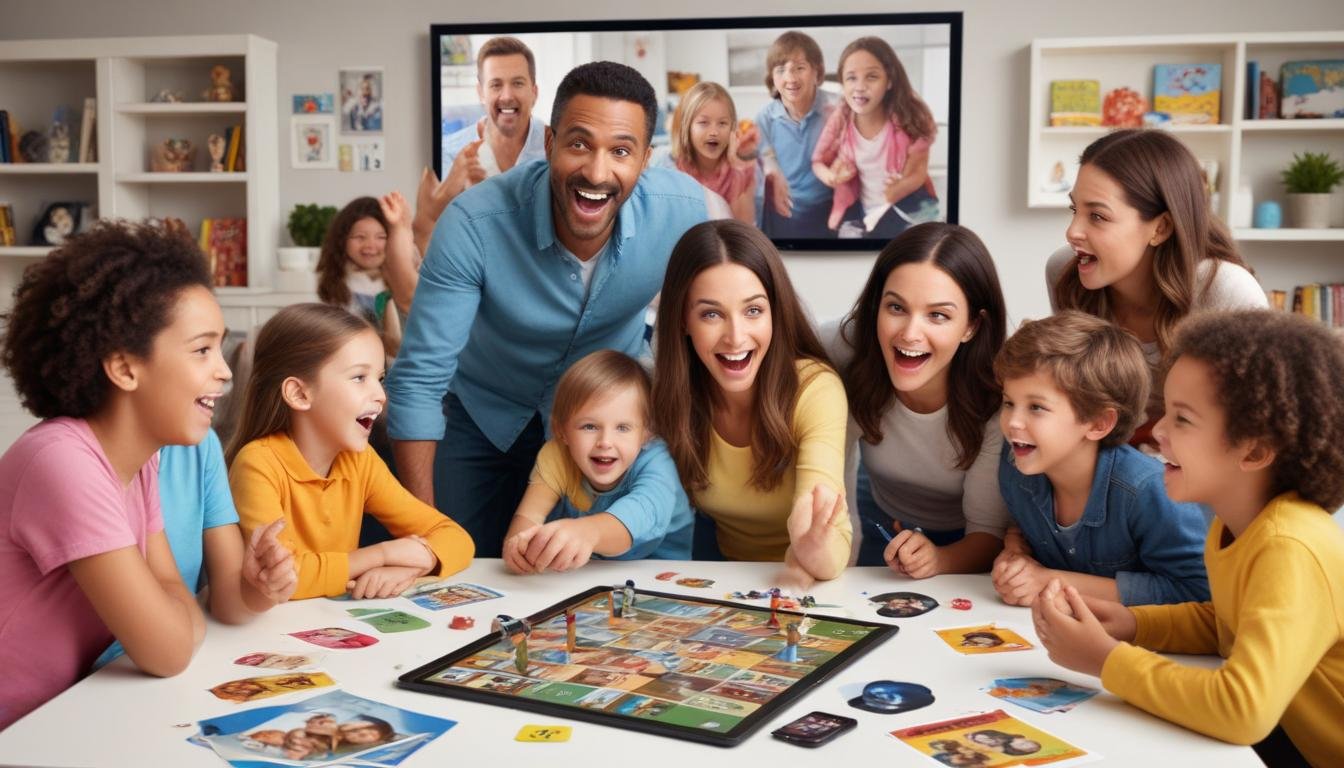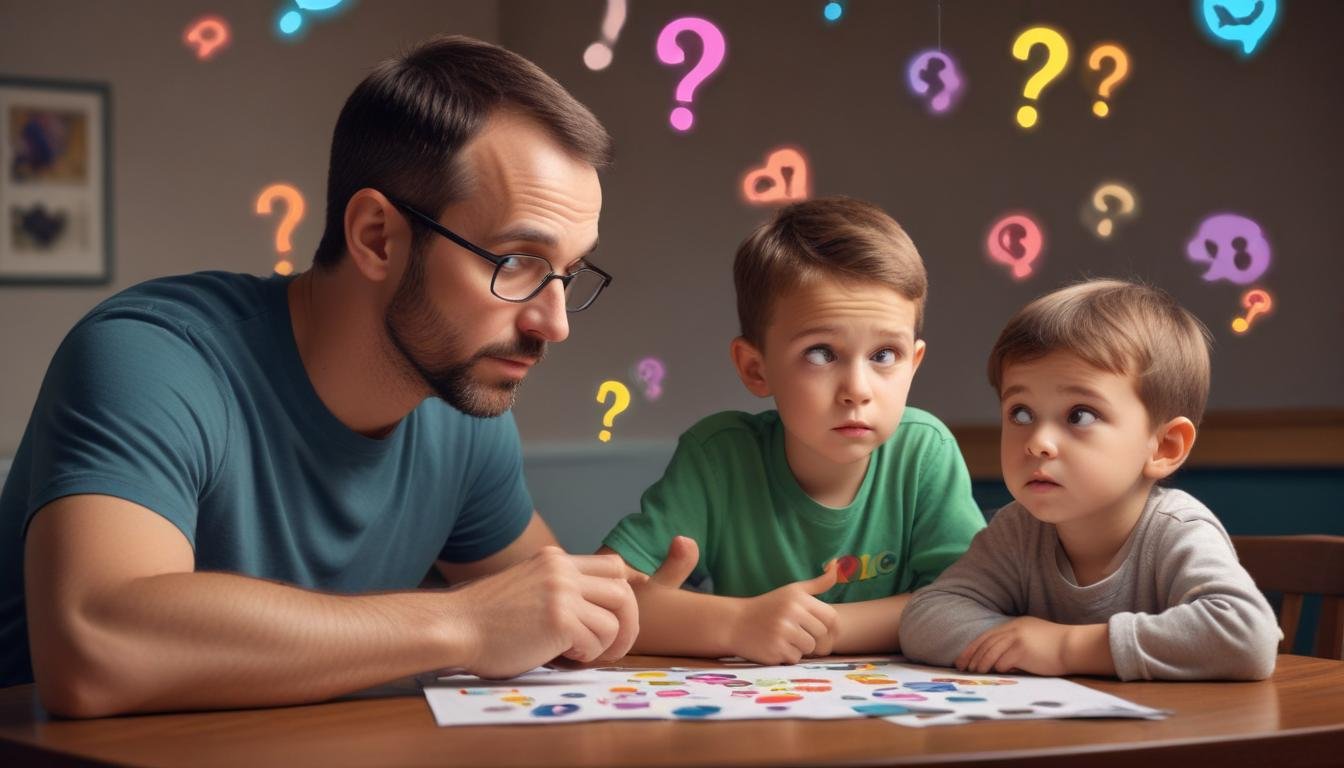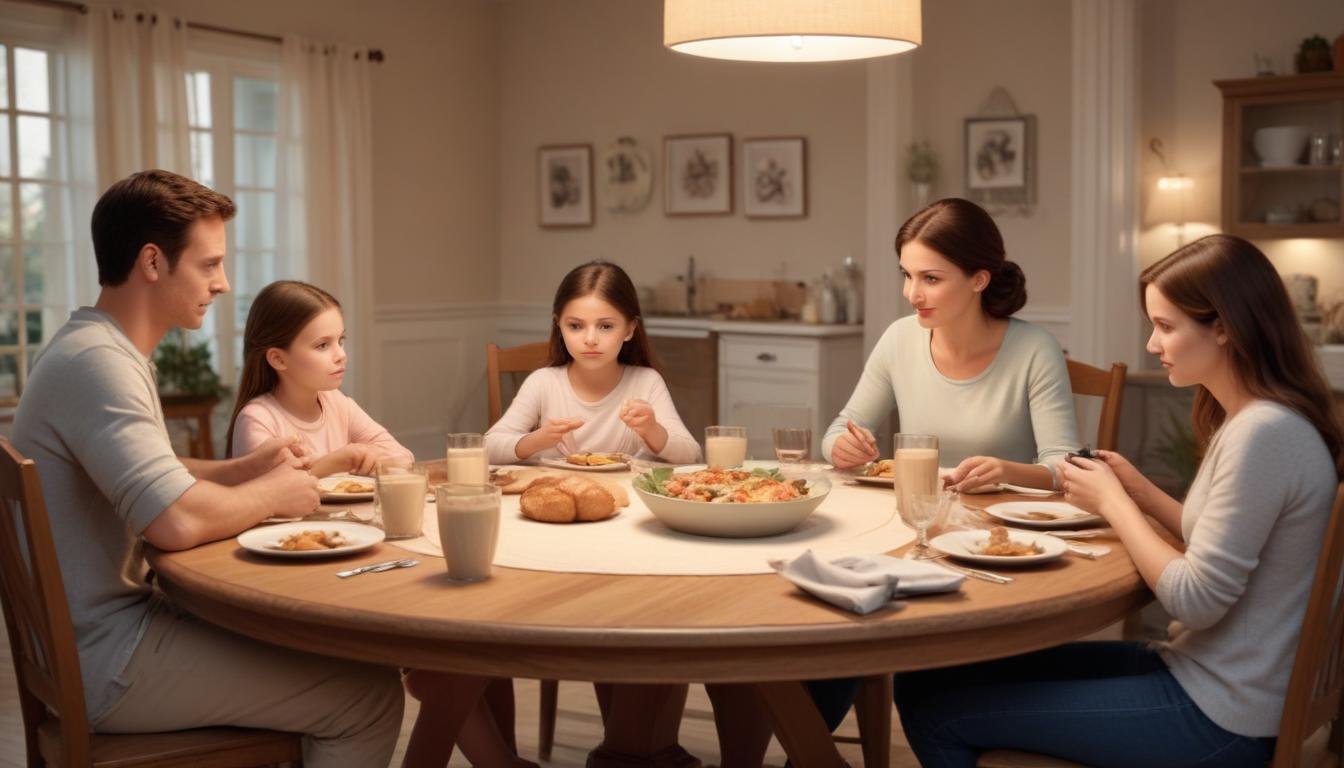Understanding Digital Boundaries in Social Media
As a parent, I want my kids to enjoy social media while staying safe. It’s all about understanding digital boundaries. Recently, I sat down with my 14-year-old son, Robert, to talk about how to protect his teen privacy online. I shared how important it is to think before posting anything. Just like in real life, we don’t share everything with everyone, right? We talked about how some things are private and shouldn’t be out there for everyone to see.
One day, I noticed that Robert was spending a lot of time on social media. I decided to have a family movie night to bring everyone together. During our fun night, I shared a little story. I told them about a time I saw a news report about someone who shared too much online and faced some problems. My kids listened closely, and I could see them thinking. It helped them realize that even small actions can have big consequences.
Another example was with Patricia, my 10-year-old daughter. She loves sharing her art on social media. I encouraged her to talk about how her art makes her feel before posting. This way, she can share what she loves without losing her privacy. We even created a fun checklist together to help her decide what to share and what to keep just for close friends and family. It became a little game for her! It’s thrilling to see her express herself while being mindful of her digital boundaries.
Mark and Matthew, my 8-year-old twin sons, are a bit younger, but even they can start to learn about social media safety. We often play games and talk about online safety in a fun way. For example, we make up silly scenarios where they pick what to share online. This helps them think critically about what is okay and what isn’t. It’s amazing how engaged they get when it feels like a game!
By opening these conversations and sharing my experiences, I find that my kids feel comfortable coming to me. They know they can talk about anything. This helps us set the right digital boundaries together. I truly believe that with the right parenting help, we can guide our children to enjoy the wonderful world of social media while keeping their privacy safe. It’s all about teaching them to be smart and responsible online, just like they are in real life.
The Importance of Open Communication

One important thing I’ve learned as a parent is how vital it is to keep the lines of communication open with my kids about social media safety. It makes a huge difference! For instance, one evening while we were having dinner, I asked Robert how he felt about his friends and their posts online. His response surprised me! He mentioned that sometimes he sees things that make him uncomfortable but didn’t know how to talk about it. That moment showed me just how important it is to create a safe space for our kids to share their thoughts.
Michelle, my wife, and I always try to encourage our children to express themselves. We make it a point to ask them about their day, including what they saw online. When Patricia, for example, shares her art, we ask her how she feels when people comment on it. This not only helps her process emotions but also teaches her to think about how social media impacts her feelings. As she navigates her digital world, I want her to know she can always come to us if something feels off or confusing.
One day, Mark and Matthew were playing a game online when they ran into a chat room. They didn’t know what to do because things got a bit strange. Instead of panicking, they took a screenshot and brought it to me. I was so proud of them for reaching out! We used that situation as a teaching moment. I reminded them how critical it is to talk openly about what they see and experience online, especially when it involves their teen privacy or anything that makes them feel uneasy.
This kind of open communication is key for our family. It allows us to work together to set boundaries in a way that feels natural. We talk about what is okay to share online and what should remain private. I always remind them that it’s their right to keep certain things just for themselves, and there’s nothing wrong with that! I want them to feel empowered in their online choices.
Involving our kids in conversations about social media safety transforms the way they interact with the digital world. They learn to think critically and understand the importance of speaking up if something doesn’t sit right with them. And that makes my heart happy because I know we’re building trust and understanding together as a family.
Establishing Healthy Screen Time Limits

Setting healthy screen time limits is so important for my kids. With everything they can do online, it’s easy for them to get lost in the digital world. I remember when Robert first got his phone. He was glued to it! Michelle and I realized we needed a plan. It felt overwhelming at first, but we wanted to make screen time work for our family, not control it.
One weekend, we decided to have a family meeting. We gathered everyone in the living room and put our phones in a basket. We talked about the importance of balancing our time online and offline. I explained that too much screen time can affect our mood and even get in the way of family time. The kids nodded, and I could tell they were listening. We wanted to find a way to have fun with technology but not let it take over our lives.
So, we created a simple rule: weekdays were for homework and chores, while weekends were a time for fun. Each kid got a set amount of time for their devices on the weekends. This gave them something to look forward to after finishing their tasks! I felt excited to see how this would work for them. I remembered how special family time is. We started having game nights or outdoor adventures. One day, we went to the park and played frisbee together. Everyone laughed, and it was heartwarming to feel that family bond grow stronger.
We also set up family tech-free areas, like during meals and in the evenings. We learned that setting these limits helps with our family conversations. At dinner, we shared stories about our day, and the kids opened up about what they saw online. This helped reinforce the idea of social media safety and showed them the value of being present with each other.
If someone felt their screen time was getting a bit too much, we encouraged them to come to us. I shared my experience about needing breaks from my computer too. This makes it easier for my children to recognize when they need a break. For example, Patricia sometimes tells me she feels tired after a long day of school and screen time. I’m glad she feels comfortable speaking up and asking for support. This positive line of communication is part of the parenting help that I value so much.
By creating healthy screen time limits, we found a balance that works for our family. Now, my children enjoy their time online, but they also cherish our family moments together. It brings so much joy to see them growing up with good habits in social media usage. I believe these lessons will help them in their journey to understand teen privacy and make smart choices as they continue to navigate the world around them.
Encouraging Critical Thinking About Online Content

Teaching my kids to think critically about what they see online is one of the most rewarding things I can do as a parent. It’s amazing how much information is out there, and I want them to know how to use it wisely. I remember one afternoon, I sat down with Robert and Patricia, and we decided to look at some popular social media posts together. We picked out a few that had interesting pictures or captions. I asked them, “What do you think about this?”
To my surprise, they both had strong opinions! Robert pointed out how some posts seemed too perfect and made people feel bad about themselves. Patricia chimed in, noting that not everything you see online is real. They were starting to understand the idea that social media is not always a true reflection of life. It filled my heart with pride to see them connect the dots about teen privacy and the importance of honesty online.
Even with my younger twin boys, Mark and Matthew, we found playful ways to encourage this kind of thinking. We love to play a game called “Spot the Fake.” One day, I showed them pictures of celebrities and some sponsored ads. I asked them to guess what was real and what was altered. They laughed and loved trying to outsmart each other! This fun activity not only kept them engaged but also taught them that not everything online is true. It’s so important for them to recognize that while social media can be fun, it can also be tricky.
Sometimes, I hear stories from my parents about how they had to carefully choose what to share in their own lives. My dad, Michael, often talks about his days as a police officer and how he would advise people to be cautious. I think about that when I guide my kids on how to navigate their online world. It’s like a bridge connecting our past to their present. I want them to embrace the fun parts of social media while also being aware of the pitfalls.
One evening, we all gathered for our family story night. I decided to share a tale about someone I knew who got in trouble because of something they posted. My kids listened closely as I explained how a little oversharing can lead to big problems. I saw the look in Robert’s eyes, and I knew he understood. It was a great moment for him to reflect on how important it is to think before sharing and to consider their digital footprints.
By developing this critical thinking about online content, we are building a strong foundation for their social media safety. I encourage my kids to ask questions, like “Is this real?” or “How will people react to this?” This process gives them tools to make smarter decisions and be more responsible. I cherish the fact that we are all learning together about what is best for them and how to protect their teen privacy. It’s about giving them the confidence to navigate their online lives with care and thoughtfulness.
FAQ

It’s really important to answer questions my kids have about social media safety. I remember one time when Robert asked me, “Dad, why do some people get in trouble for what they post online?” I loved that he felt comfortable enough to ask me! It gave us the chance to talk about the different kinds of online behavior that could lead to problems.
During our conversation, I shared a story about a young girl who had posted a lot of personal information on her social media account. She didn’t realize how easy it was for strangers to find her. This story really opened Robert’s eyes. He understood that teen privacy is a big deal and that we need to protect it. I encouraged him to think about what he shares online, making sure he respects his own privacy and the privacy of others.
The questions didn’t stop there, though! Patricia, my 10-year-old, once asked me, “Why do people post mean things?” I was proud of her for noticing that. We talked about how not everyone shows kindness online. It made her think about her own online behavior. I reminded her that being nice, even through a screen, is super important. This kind of conversation helps my kids understand that they can make positive choices on social media.
Mark and Matthew also have their popping questions! One day, while playing a game, they wondered why we set limits on screen time. I told them it’s not just about taking their fun away; it’s about helping them enjoy technology in a balanced way. I explained how screen time can take away from family time or even cause them to miss out on other activities. This discussion let them feel included, and they understood how we all work together in our family to stay healthy and smart about being online.
Whenever I see my kids questioning things they come across online, I know we’re on the right track. It’s like we’re building a little safety net together. By being open to their questions and sharing stories, I help them see the importance of handling their online presence with care. It’s not always easy to talk about these topics, but I truly believe it’s valuable parenting help that we all benefit from.
So, let’s keep the conversations going! It’s okay for our kids to wonder and ask. The more they do, the better prepared they’ll be to navigate the vast world of social media. Our job is to guide them, share our experiences, and inspire them to make smart choices that keep their teen privacy safe and sound.
About me
I’m Dr. Victor Lee, and cybersecurity isn’t just what I do—it’s what I’m passionate about. With a Ph.D. in Computer and Information Security and more than two decades of experience, I’ve had the privilege of watching the cybersecurity landscape evolve. I believe in sharing knowledge to make a difference, which has inspired me to teach college-level courses online. My mission is to contribute to protecting the digital world from cyber threats.
I’m happily married and a proud father of four amazing children. My wife, Michelle, is a talented marketing manager in her 40s. We have twin sons, Mark and Matthew, who are 8 years old and bring so much joy to our lives. Our daughter, Patricia, is 10 years old and thriving in middle school. Our oldest, Robert, is a 14-year-old high school student embracing new challenges. As a family, we call Fresno, California, our home.


